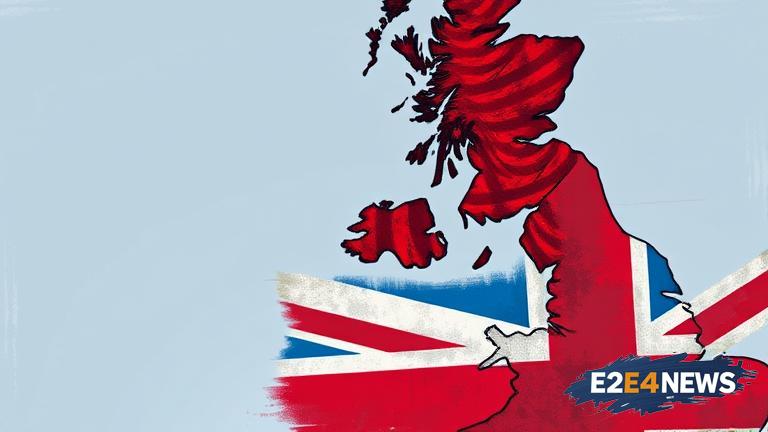The UK government has unveiled a highly controversial plan to repeal human rights laws and deport all asylum seekers, a move that has been met with widespread criticism and concern from human rights groups and opposition parties. The plan, announced by the UK’s Reform party, aims to overhaul the country’s human rights framework and introduce stricter immigration controls. The proposed reforms would see the UK withdraw from the European Convention on Human Rights and repeal the Human Rights Act, which has been in place since 1998. The government claims that the reforms are necessary to tackle the growing number of asylum seekers and to restore public trust in the immigration system. However, critics argue that the plans would undermine the UK’s commitment to human rights and leave vulnerable individuals without protection. The reforms would also introduce a new system for dealing with asylum claims, which would prioritize the deportation of asylum seekers over their right to claim refuge in the UK. The government has stated that the new system would be designed to deter asylum seekers from coming to the UK and to reduce the number of claims being made. However, human rights groups have warned that the plans would put the lives of vulnerable individuals at risk and would be in breach of international law. The UK’s opposition parties have also condemned the plans, with the Labour party describing them as ‘cruel and inhumane’. The Liberal Democrats have also criticized the plans, stating that they would ‘undermine the UK’s reputation as a beacon of human rights’. The plans have also been criticized by the United Nations, which has warned that they would be in breach of international law and would put the lives of vulnerable individuals at risk. The UK government has defended the plans, stating that they are necessary to tackle the growing number of asylum seekers and to restore public trust in the immigration system. However, critics argue that the plans are motivated by a desire to appease right-wing voters and to distract from the government’s other policy failures. The plans have sparked widespread protests and demonstrations across the UK, with thousands of people taking to the streets to express their opposition to the reforms. The controversy surrounding the plans has also sparked a wider debate about the UK’s commitment to human rights and its role in the world. Many have argued that the plans would undermine the UK’s reputation as a champion of human rights and would damage its relationships with other countries. Others have argued that the plans would be a betrayal of the UK’s values and would put the lives of vulnerable individuals at risk. The plans have also been criticized by business leaders, who have warned that they would damage the UK’s economy and would deter international investment. The controversy surrounding the plans has also sparked a wider debate about the role of the media in shaping public opinion and the impact of social media on political discourse. Many have argued that the media has played a significant role in shaping public opinion on the issue and that social media has been used to spread misinformation and propaganda. The plans have also been criticized by academics, who have warned that they would undermine the UK’s academic reputation and would damage its relationships with other universities and research institutions. The controversy surrounding the plans has also sparked a wider debate about the role of politicians in shaping public policy and the impact of political rhetoric on public opinion. Many have argued that politicians have a responsibility to protect human rights and to promote the values of tolerance and compassion. The plans have also been criticized by faith leaders, who have warned that they would undermine the UK’s moral authority and would damage its relationships with other faith communities. The controversy surrounding the plans has also sparked a wider debate about the role of civil society in shaping public policy and the impact of activism on political discourse. Many have argued that civil society has a critical role to play in promoting human rights and in holding politicians to account. The plans have also been criticized by trade unions, who have warned that they would undermine workers’ rights and would damage the UK’s economy. The controversy surrounding the plans has also sparked a wider debate about the role of the UK in the world and its relationships with other countries. Many have argued that the plans would undermine the UK’s reputation as a global leader and would damage its relationships with other countries. The plans have also been criticized by environmental groups, who have warned that they would undermine the UK’s commitment to environmental protection and would damage its relationships with other countries. The controversy surrounding the plans has also sparked a wider debate about the role of the UK in promoting human rights and the impact of its policies on vulnerable individuals. Many have argued that the UK has a responsibility to promote human rights and to protect vulnerable individuals, and that the plans would be a betrayal of this responsibility.
